An Introduction to Game Finance (GameFi)
OnFinality, a multi-chain infrastructure provider, shares how it is supporting the growth and development of GameFi teams like Ajuna Network and DFK Chain with reliable and scalable APIs.
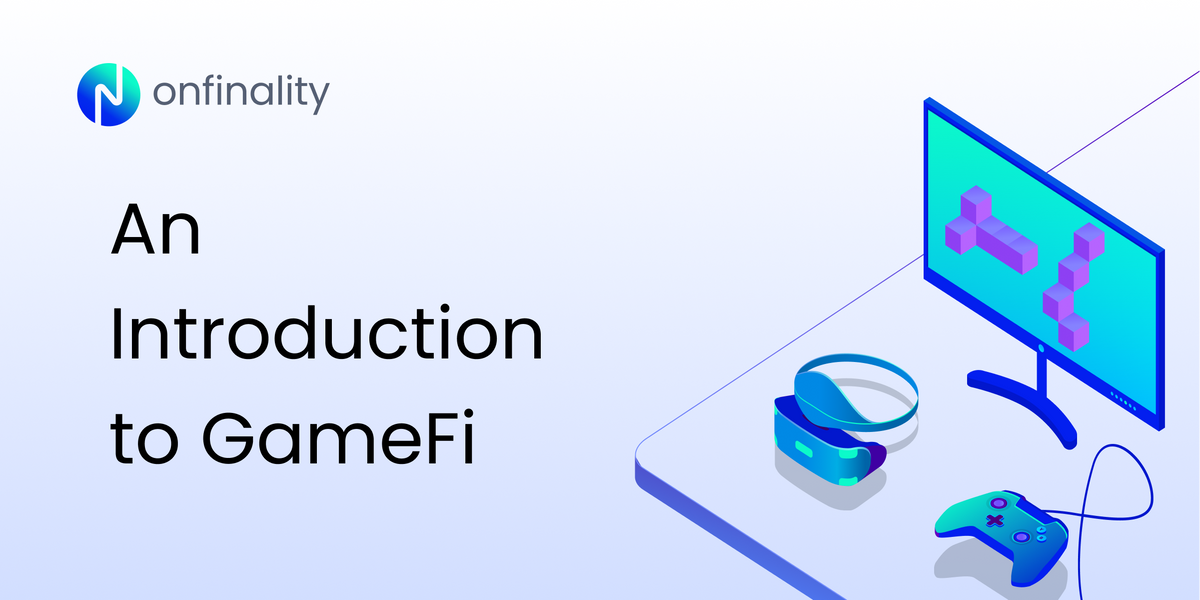
OnFinality is a blockchain infrastructure platform that saves web3 builders time and makes their lives easier. We deliver easy-to-use, reliable and scalable API endpoints for the biggest blockchain networks and empower developers to automatically test, deploy, scale and monitor their own blockchain nodes in minutes.
In this article, we delve into one of the most exciting sectors of web3 — Game Finance (GameFi). We explore how DeFi (Decentralised Finance) and traditional games can come together to deliver an immersive gameplay like never before, creating financial inclusion and onboarding the masses onto web3 — all at once!
TLDR
- Blockchain games are the next generation of games
- We can now earn real-world rewards by playing games
- GameFi is creating jobs, revenue streams and financial inclusion in many parts of the world
- GameFi can help to drive mainstream adoption of cryptocurrency and onboard the masses onto DeFi
- OnFinality helps GameFi teams push the boundaries of innovation and create accessible and stable games
What is GameFi?
GameFi (Game Finance), the intersection of gaming and Decentralised finance (DeFi), revolutionises the gaming experience by granting players unprecedented ownership and value.
Unlike traditional gaming, GameFi offers real-world utility and full control over in-game assets. Gamers can tokenise their characters, indulge in cross-gameplay, and enjoy gaming experiences across different games in a more interconnected gaming environment.
With GameFi, gamers finally possess complete ownership of their games and in-game assets, including avatars, weapons, costumes and even virtual land.
How does GameFi work?
GameFi operates by harnessing the power of blockchain technology, to unlock economic opportunities and tangible value within virtual worlds, paving the way for a new era of gaming experiences.
Drawing inspiration from the concept of ownership introduced by Bitcoin and the advancements made possible by Ethereum’s Smart Contracts, players can now trade, sell, and prove ownership of their in-game assets seamlessly.
Through tokenisation and the use of NFTs (non-fungible tokens), players can convert their in-game assets into digital assets, and trade or transfer them via on-chain swaps governed by Ethereum Smart Contracts.
Ethereum Smart Contracts utilises a set of predefined rules and conditions to ensure that transactions abide by the terms of trade before execution, providing a trustless and efficient system for asset exchange.
Leasing protocols within GameFi separate the ownership and right to use in-game assets, allowing players to retain ownership while granting others the ability to utilise them.
Additionally, distributed cloud gaming platforms enhance scalability and accessibility for players, ensuring a smooth and uninterrupted gaming experience.
This transformative approach to decentralised games has gained particular traction in mobile games, where the shorter development time (as compared to PC games), lower costs, and wider audience appeal make them a significant driver of GameFi’s rapid adoption.
What is Play-to-Earn (P2E) and how does it work?
One of the most tangible benefits of GameFi is the Play-to-Earn (P2E) concept. This revolutionary concept has garnered substantial attention and acclaim for its capability to turn what was previously perceived as a mere “waste of time and money” into a lucrative venture that offers both financial rewards and enjoyment.
The allure of Play-to-Earn lies in its ability to incentivise gameplay, offering players a chance to earn supplemental income, especially during times of economic uncertainty such as the pandemic or economic downturn.
Moreover, this concept is not limited to individual players; it has the potential to transform entire societies. Play-to-Earn has gained substantial traction in Southeast Asia, particularly in countries like the Philippines, where a staggering 44% of the population remains unbanked.
The Challenges of GameFi
Despite presenting undeniable social and economic benefits, the emergence of GameFi brings with it a set of challenges that need to be addressed for its widespread adoption.
- Speed and Security
One of the key obstacles lies in the nascent state of blockchain technology and the crypto industry. While blockchain technology and cryptocurrencies aim to simplify transactions and reduce costs, they are still in the early stages of development, resulting in slow transaction times and on-chain security issues.
These include the vulnerability of ERC-20 tokens, cross-chain bridges, DAO governance, and NFTs, as well as threats from hacking as demonstrated in the Axie Infinity hacking incident which resulted in a loss of $625 Million in crypto.
- Crypto Volatility & Regulatory Ambiguity
The lack of regulatory enforcements, coupled with the highly volatile nature of GameFi tied to the crypto market, add to the challenges faced by GameFi.
- Accessibility
While the notion of Play-to-Earn seems like a no-brainer, players face accessibility obstacles to GameFi platforms requiring a basic understanding of cryptocurrency concepts to generate wallet addresses and manage private keys (aka passwords used to authorise crypto transactions).
- The ‘Fun’ Factor
Besides technological hurdles, there is a growing concern that the industry’s focus has shifted towards earning tokens than the actual gameplay, as evidenced by the prevalence of activities like the flipping of NFTs and in-game assets.
Overcoming these obstacles will be crucial to ensure the long-term success and sustainability of the GameFi ecosystem.
How the GameFi industry can move forward
GameFi could be a catalyst to drive mass adoption of cryptocurrency and onboard the masses onto DeFi fostering financial inclusion while bypassing the complexities of traditional financial education.
But first, technological and accessibility barriers need to be fixed. Implementing digital identities or identifiers in place of long strings of alphanumerical wallet addresses and private keys would simplify user experiences and prevent the irreversible loss of assets.
The concept of “Play-and-Earn” holds promise as a solution to the “Play-to-Earn” paradigm, ensuring that gameplay is truly enhanced by the sense of ownership in-game, rather than being seen only as an avenue to derive monetary rewards from overhyped virtual possessions.
Successful GameFi Case Studies
Originating from a blockchain game Cryptokitties (2017), and made popular by Axie Infinity (2018), the rise of GameFi has already witnessed numerous success cases.
1. Axie Infinity ($AXS)
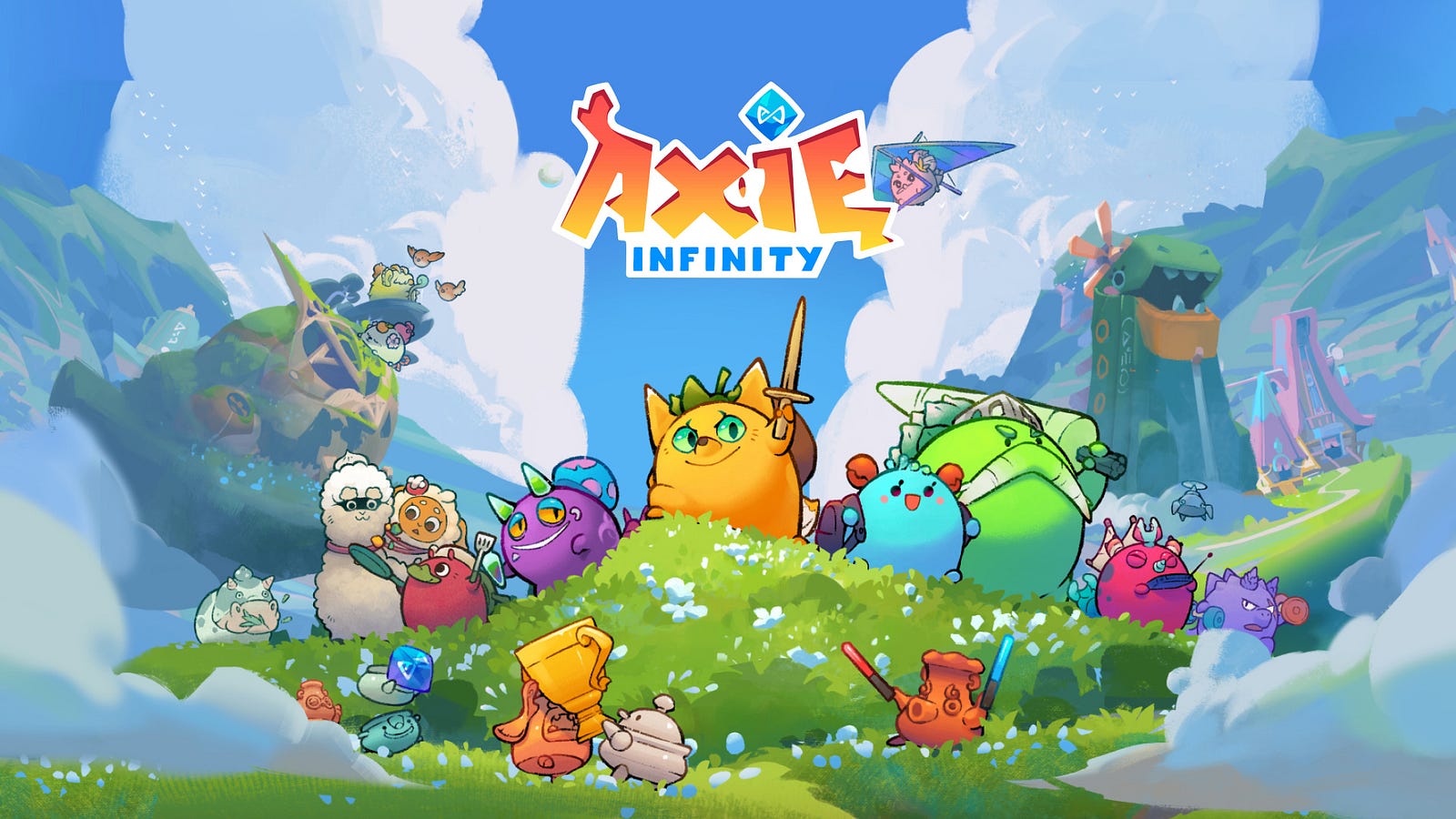
Axie Infinity was the first platform to deploy Play-to-Earn (P2E) mechanics at scale, experiencing remarkable success with its valuation in Billions.
By enabling players to earn cryptocurrency rewards through gameplay, Axie Infinity demonstrated the viability of the GameFi concept.
2. The Sandbox ($SAND)
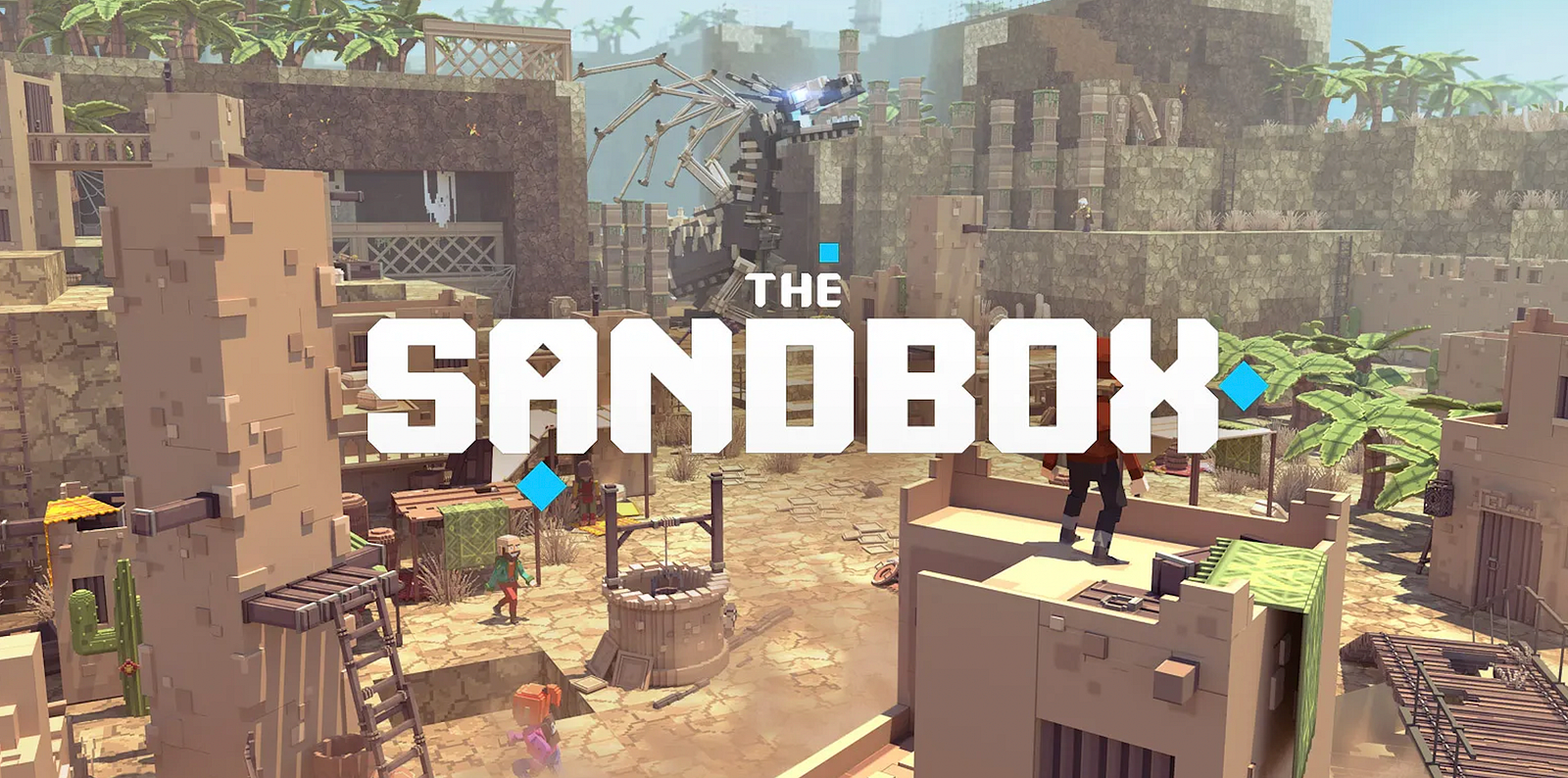
The Sandbox, originally a 2D pixel mobile game, incorporated blockchain technology to create a 3D immersive Metaverse, enabling non-tech savvy users to create, own, and monetise their gaming experiences.
Its innovative approach to user-generated content and decentralised ownership has attracted a thriving community.
3. Yield Guild Games ($YGG)
Yield Guild Games (YGG) stands as a prominent force, bringing forth the socio-economic advantages of GameFi and serving as a vital link connecting conventional gaming with decentralised finance.
YGG empowers players to invest in virtual assets and passively generate income, thus fostering a harmonious blend of gaming and financial opportunities.
4. The Gamification of Literally Anything
SNKRZ’s Walk-to-Earn and Nodle’s Connect-to-Earn exemplify the gamification aspect of GameFi, offering groundbreaking platforms that motivate users to engage in physical activities and reward their movements with cryptocurrency incentives.
These successful case studies demonstrate the transformative potential of GameFi in various sectors and highlight the innovation and progress that is propelling the GameFi ecosystem forward.
The Future of GameFi
GameFi has forever changed the gaming landscape; In the yesteryears of games, you pay to play. Today, you earn when you play.
What was once viewed as a social stigma has blossomed into an industry that generates jobs and offers full-time income, fostering financial inclusion for the unbanked.
Besides facilitating a creator’s economy where not only game developers benefit, we all now have the opportunity to own a stake in the games we love, turning our passion into a rewarding investment.
GameFi is definitely a space to watch as it continues to shape the future of gaming and create a world where everyone can thrive through the power of play.
How OnFinality Supports GameFi projects
OnFinality stands as a staunch advocate for the thriving GameFi ecosystem, recognising the paramount importance of robust security throughout its development lifecycle.
In an industry susceptible to hacking and potential losses for players and investors, safeguarding the integrity of GameFi projects becomes imperative.
OnFinality actively supports the growth and development of GameFi teams like Ajuna Network — a blockchain solution for web3 gaming, and DFK Chain — DeFi Kingdoms’s blockchain which handles gameplay transactions in Crystalvale and hosts the Crystalvale DEX.
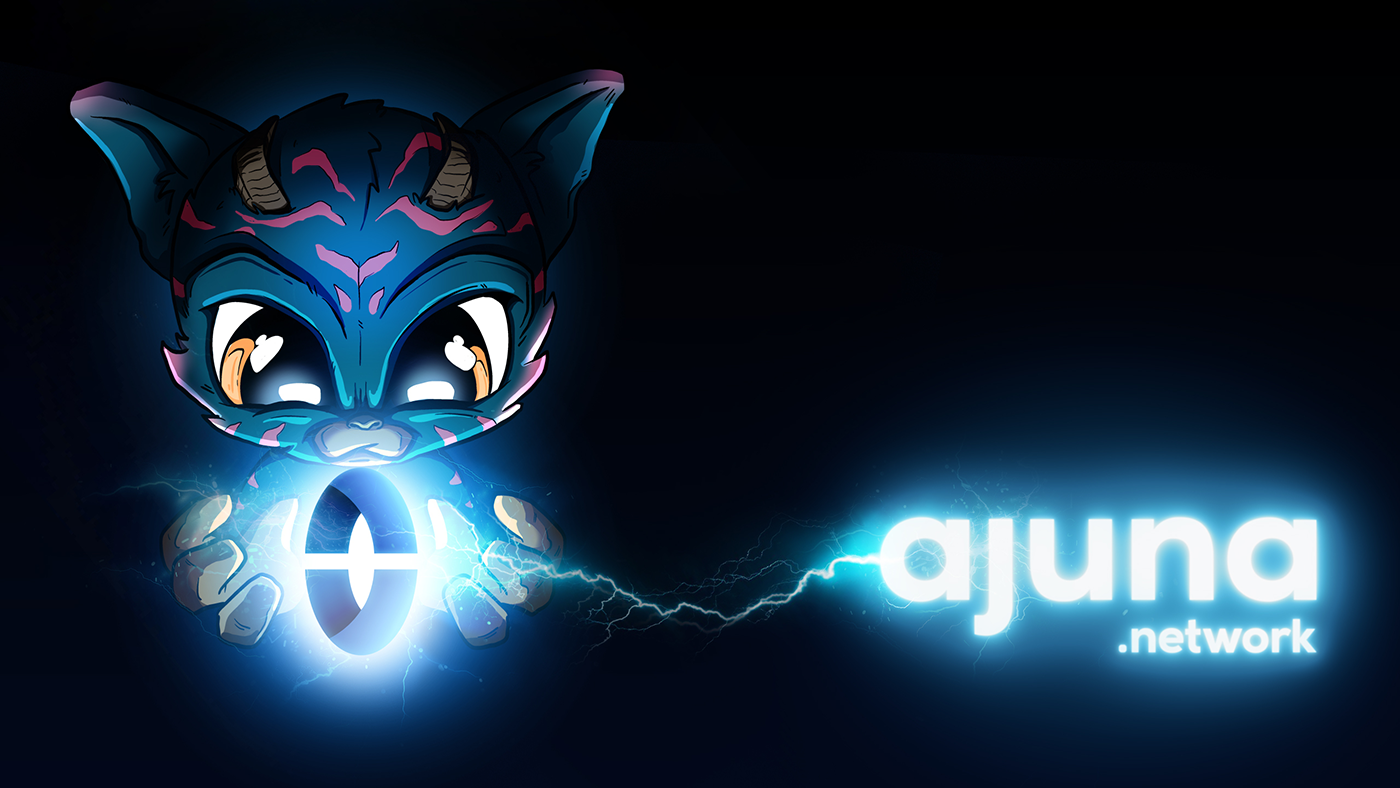
By offering easy-to-use, reliable, and scalable API and node solutions, GameFi projects can now focus on building a more accessible and stable GameFi ecosystem.
Ready to shape the future of GameFi together?
Sign up to the OnFinality app and receive 500,000 free daily responses instantly!
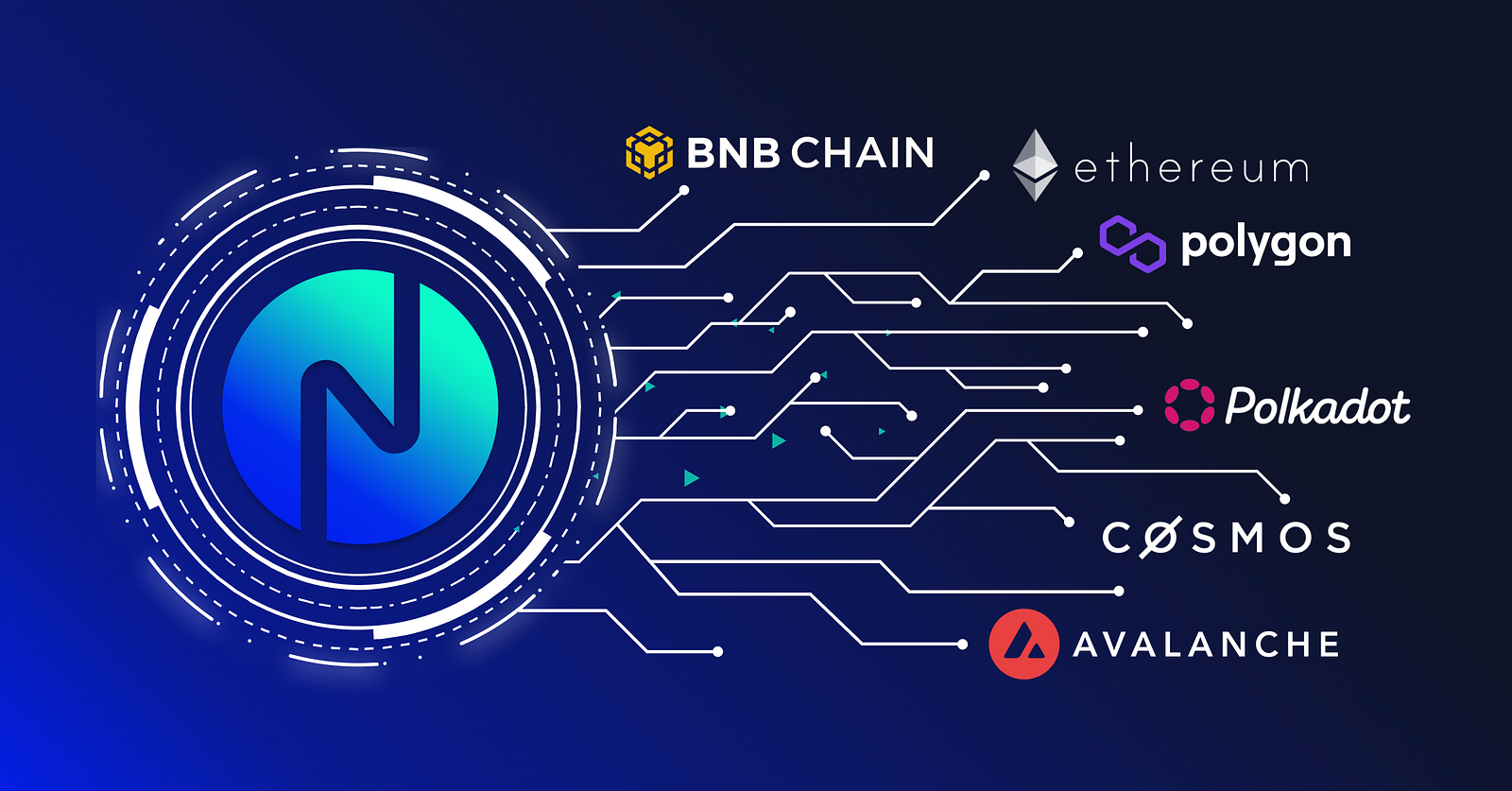
Build Smarter with OnFinality. 😎
About OnFinality
OnFinality is a blockchain infrastructure platform that saves web3 builders time and makes their lives easier. OnFinality delivers scalable API endpoints for the biggest blockchain networks and empowers developers to automatically test, deploy, scale and monitor their own blockchain nodes in minutes. To date, OnFinality has served over hundreds of billions of RPC requests across 80 networks including Avalanche, BNB Chain, Cosmos, Polkadot, Ethereum, and Polygon, and is continuously expanding these mission-critical services so developers can build the decentralised future, faster!
